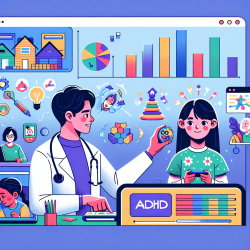Unleashing Potential: The Power of Reading Aloud to Dogs
As educators and practitioners, we are always on the lookout for innovative strategies to enhance learning and development in our students. A recent study titled Supporting Young Readers: A Mixed-Methods Study of Their Literacy, Behaviour, and Perceptions When Reading Aloud to Dogs or Adults offers an intriguing insight into the world of animal-assisted interventions (AAI) and their impact on literacy.
Understanding the Study
The research conducted in Calgary, Canada, explored the effects of reading aloud to dogs versus adults on young readers. The study involved 24 children aged 7 to 8, identified as needing extra reading support. These children participated in both dog-assisted and adult-assisted reading sessions in a randomized order. The outcomes were measured in terms of oral reading, reading comprehension, social functioning, and reading affect.
Key Findings
- Improved Literacy: The study found significant improvements in reading performance, particularly when children read to dogs. This suggests that the presence of a non-judgmental companion like a dog can enhance a child's reading skills.
- Social Competence: There was evidence of improved social competence and decreased problematic behavior, though this was influenced by the order of exposure to the interventions.
- Perceptions: Teachers and parents reported that both interventions positively impacted the students' skills and attitudes towards reading, with a notable distinction in favor of the canine-assisted sessions.
Practical Implications
For practitioners in education, these findings suggest that incorporating animal-assisted interventions can be a valuable addition to traditional literacy programs. Here are some steps to consider:
- Integrate AAI in Literacy Programs: Consider including dog-assisted reading sessions as part of your literacy intervention strategies.
- Monitor and Evaluate: Keep track of students' progress and behavior changes to assess the effectiveness of these interventions.
- Train and Collaborate: Work with trained handlers and therapy dogs to ensure the sessions are safe and beneficial for all participants.
Encouraging Further Research
While the study provides promising results, it also highlights the need for further research to explore the long-term effects of AAI on literacy and social skills. Practitioners are encouraged to contribute to this growing field by conducting their own studies and sharing findings with the educational community.
To read the original research paper, please follow this link: Supporting Young Readers: A Mixed-Methods Study of Their Literacy, Behaviour, and Perceptions When Reading Aloud to Dogs or Adults.










